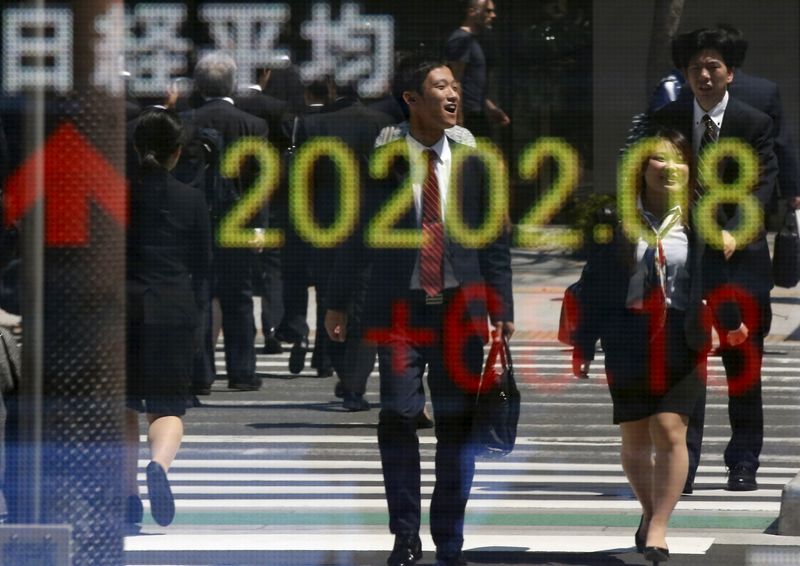Investing.com - Asian markets rose in morning trade on Friday. Japan’s GDP data and China’s inflation data were in focus.
Hong Kong’s Hang Seng Index was little changed at 26,144 by 10:50 PM ET (02:50 GMT).
Political crisis in the city returned to focus as thousands of protesters plan to rally at the Hong Kong International Airport on Friday afternoon.
Both Canada and the U.S. raised their travel warning for Hong Kong this week following multiple mass protests in the last two months that saw tear gases and rubber bullets being fired at protesters in highly-densed commercial and residential areas.
Zhang Xiaoming, one of China’s most senior officials overseeing Hong Kong affairs, said in a press conference on Wednesday that “Hong Kong is now facing the most severe situation since its handover” from the United Kingdom in 1997.
The Shanghai Composite and the Shenzhen Component inched up 0.1% and 0.2% respectively. The National Bureau of Statistics reported on Friday that China’s consumer price index rose 2.8% from a year ago in July, slightly higher than the 2.7% markets had previously expected.
The producer price index fell 0.3% during the month, more than the expected 0.1% decline.
Japan’s Nikkei 225 was up 0.7% after data showed the country’s economy grew 1.8% year-on-year in April-June, much better than the expected 0.4% growth.
Compared against the previous quarter, gross domestic product gained 0.4%, also beating expectations.
South Korea’s KOSPI rose 1.3%.
Down under, Australia’s ASX 200 gained 0.3%.
On Friday, the Reserve Bank of Australia warned in its statement of monetary policy that inflation is unlikely to reach target until mid-2021. The central back is ready to easy policy “if needed,” according to the statement.
It also trimmed its forecast of economic growth for 2019.
"It is reasonable to expect an extended period of low rates will be needed to achieve the Board's employment and inflation objectives," RBA Governor Philip Lowe said.
Earlier this week, the Reserve Bank of New Zealand surprised markets by cutting its rates by a sharp 50 basis points, citing weak economic growth.
